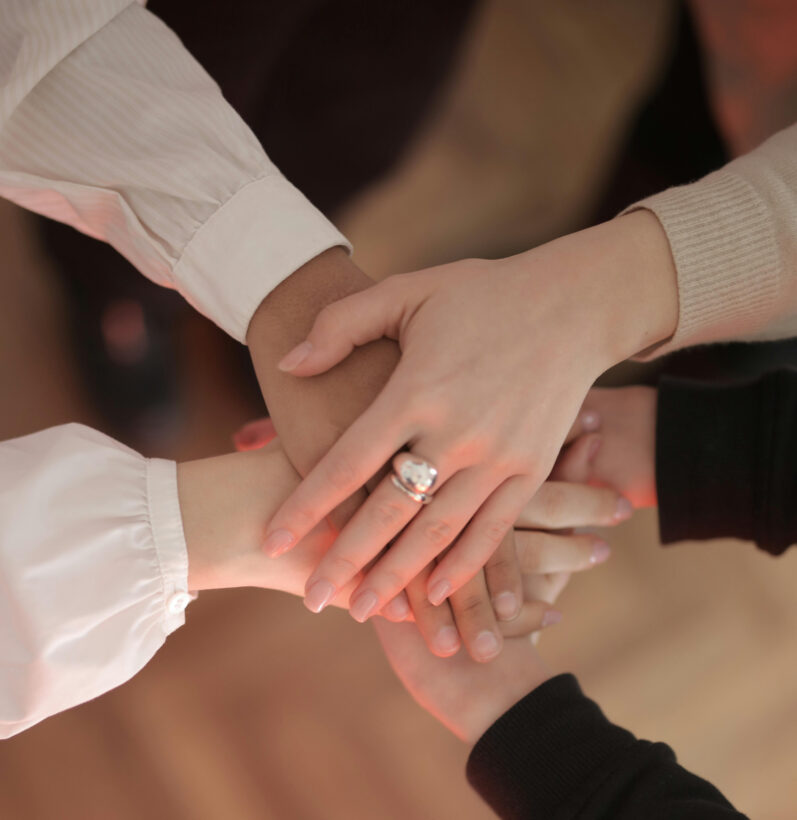
2025-03-29
Zonta International's partnerships are more important than ever
Since January, Zonta International has been closely following the news of the USAID freeze and reduced government funding for development and humanitarian assistance and has engaged in dialogue with our partners about potential implications for our international service projects. During the sixty-ninth session of the annual Commission on Women in New York last week, Zonta International leadership had the opportunity to meet in person with our partners at UNFPA, UNICEF USA, and the UNFPA-UNICEF Global Programme to End Child Marriage to discuss our ongoing projects and hear the latest developments.
Below is a summary of what we know today about each of our international service projects for the 2024-2026 biennial, but one thing is clear: Funding for programs that benefit women and girls, which were already underfunded, is now even more vulnerable. That’s why support from the private sector and organizations like Zonta International is more important than ever to ensure they have access to essential services and their rights are protected.
The way forward
Zonta International and the Zonta Foundation for Women receive no government funding, and our contributions to UNFPA and UNICEF will continue to support our three key programs to prevent violence against women and girls, promote climate justice, and end child marriage as approved by our members at the 2024 Zonta International Convention. We will continue to closely monitor the situation to ensure projects can proceed as planned and will update our members and donors on any new developments.
Thank you to all our donors for supporting this life-changing and life-saving work and for your trust and confidence. With your unwavering support and generosity, Zonta International will remain a steady and reliable source of funding for vital programs to build a better world for women and girls and ultimately a better world for all.
Climate Empowerment: Empowering Local Communities and Innovating for Gender-Transforming Climate Action
UNFPA programs have been significantly impacted by USAID’s freeze and funding cuts, which are being felt in several countries. In Afghanistan, over 9 million people will lose access to essential health and protection services when nearly 600 mobile health teams, family health centers and counseling centers are closed, resulting in the loss of more than 1,700 female health workers. In Yemen, more than 220,000 displaced people will no longer receive emergency assistance. In Ukraine, programs supporting 640,000 women and girls – offering gender-based violence prevention, psychosocial support, safe spaces and economic empowerment – are now at risk. While these examples illustrate the significant impact that funding cuts are having on UNFPA services in vulnerable regions, Zonta’s partnership with UNFPA to prevent climate-induced gender-based violence and other harmful practices such as child marriage in Madagascar, Mozambique and South Sudan has not been directly affected. However, the situation is changing weekly or daily. Zonta International will continue to monitor the situation and will co-host a webinar with UNFPA in April/May to provide an update on the project and any new developments. Stay tuned for more information to be released soon.
UNFPA-UNICEF global programme
Stop child marriage
The Global Programme to End Child Marriage was expecting $5 million from the US government for Phase III of the programme (2024-2030), which it will no longer receive. In fact, all major bilateral donors to the Global Programme: the UK, Norway and the Netherlands, with the exception of Canada, have also announced significant cuts to their aid budgets since the beginning of the year. Due to the “linkages with other programmes”, reduced funding to sectors such as education, health, social and humanitarian issues, particularly violence against women and protection, will also affect efforts to end child marriage. These cuts come on top of already existing funding gaps of at least 25 percent for 2025, which consequently affect programme delivery.
UNFPA country offices leveraged investments in GBV prevention and response in both development and humanitarian settings. The current cessation of humanitarian funding will jeopardize the continued delivery of GBV services for women and girls, including safe spaces, maternal health and contraception in humanitarian crises. For 2025, the Global Programme had planned to mobilize US$40 million, but now looks set to reach a maximum of US$30 million in 2025. The Global Programme is seeking alternative sources of funding, including the private sector, individual philanthropists and domestic funding, but has revised its 2025 targets and prioritized investments to ensure maximum impact. The Global Programme remains committed to delivering services in the 12 selected countries.
Laaha
UNICEF is committed to meeting the needs of women and girls, even in the most difficult humanitarian crises. One of the most innovative and exciting features of UNICEF’s GBV in Emergencies programme is Laaha, the first-ever digital web-based platform created by UNICEF with women and girls from crisis-affected regions, which aims to increase awareness of GBV and sexual and reproductive health and reduce isolation by building safe online support spaces for adolescent girls. Digital tools like Laaha are more important than ever, as GBV in emergencies is an area that has been particularly hard hit by recent cuts to humanitarian funding. According to our partners at UNICEF USA, the funding gap for Laaha is US$1.5 million. This shortfall is impacting staffing and UNICEF’s ability to achieve its goal of expanding to 15 languages and reaching 1 million girls by the end of 2025. Thanks to Zonta’s generous support, Laaha is able to continue this important work and still reach half a million women and girls in 10 different languages this year. Zonta International and UNICEF USA will be hosting a virtual Laaha experience in the coming months. More information will be released in the coming months about the program’s progress, in the meantime, here is a link to Laaha's newsletter with current updates.


